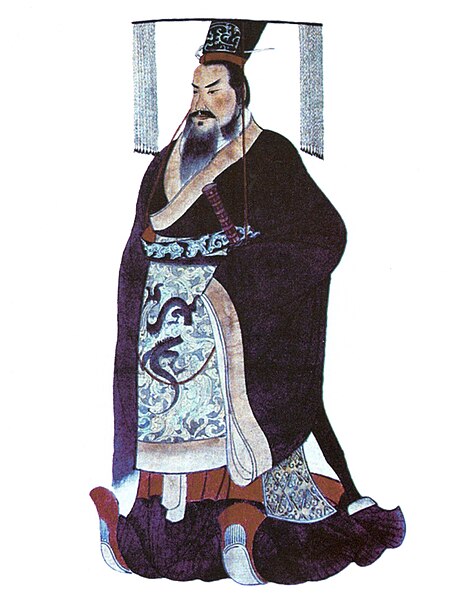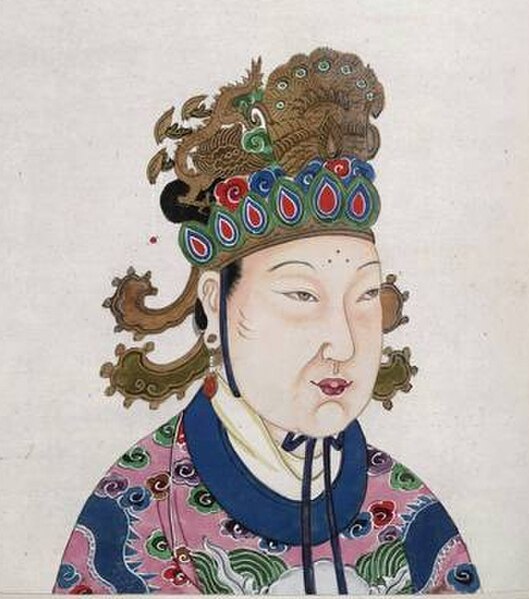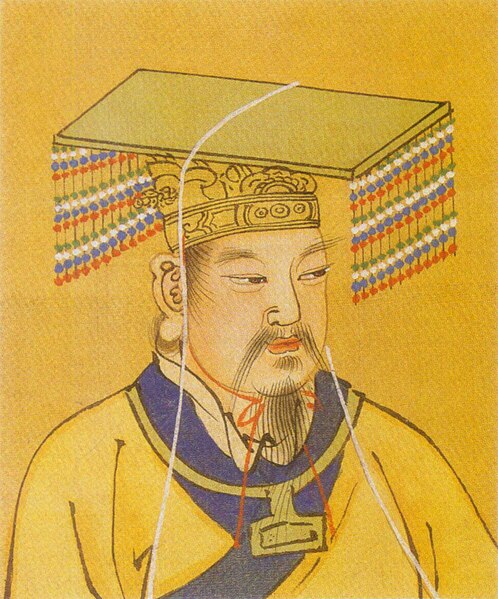Emperor Mingyuan of Northern Wei
Emperor Mingyuan of Northern Wei ( 魏明元帝), Chinese name Tuoba Si (拓拔嗣), Xianbei name Mumo (木末), was an emperor of the Xianbei-led Northern Wei dynasty of China. He was the oldest son of the founding emperor Emperor Daowu. During his reign, Northern Wei's territory did not expand as much as it did under either his father's reign or the reign of his son Emperor Taiwu, but he helped the state stabilize over northern China, and started the tradition of meeting with important imperial officials to listen to their advice and make final decisions. He is generally regarded by historians to be an intelligent and rational ruler.
Statue of Emperor Mingyuan at Yungang Grottoes
Northern Wei armoured horseman tomb figurine
Throughout Chinese history, "Emperor" was the superlative title held by the monarchs who ruled various imperial dynasties. In traditional Chinese political theory, the emperor was the "Son of Heaven", an autocrat with the divine mandate right to rule all under Heaven. Emperors were worshiped posthumously under an imperial cult. The lineage of emperors descended from a paternal family line constituted a dynasty, and succession in most cases theoretically followed agnatic primogeniture.
Qin Shi Huang, the first emperor of China (r. 221–210 BC)
Qin Shi Huang escaping assassination (3rd century AD)
An 18th century depiction of Wu Zetian, the only female emperor of China
Yellow Emperor






